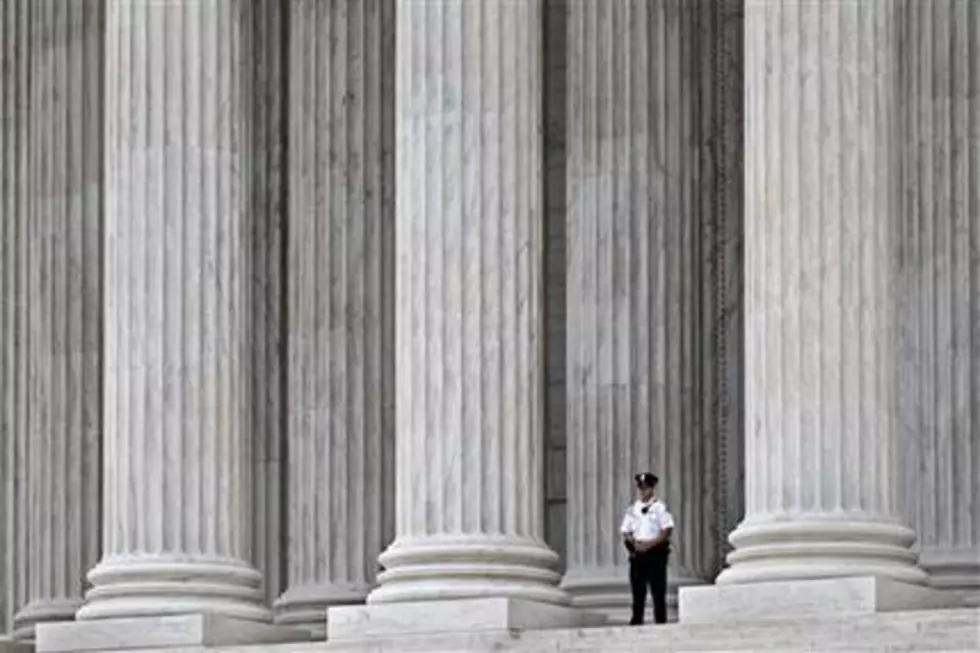
Free speech? NJ politician wants to make his ‘lying’ critics pay the price
SPRINGFIELD (Burlington) — The First Amendment guarantees the right to free speech and to petition the government.
It’s what allows citizens who oppose an elected official in this township to circulate petitions and mount a recall campaign.
But three of those residents now find themselves spending thousands of dollars on lawyers and courts fees after that politician took them to court.
Councilman David Frank is suing three foes for defamation, arguing that a petition statement that they submitted to the municipal clerk contained falsehoods.
The residents — James Specca, Jeanette L. Dietrich and Burtis F. Myers Jr. — say Frank’s lawsuit is an attempt by a politician to squash his opposition. Their lawyers have asked a judge to dismiss the case, arguing that in addition to the First Amendment concerns, the complaint is moot because the clerk never published the petition statement. Instead, the clerk refused to certify it after Frank threatened to the clerk with litigation.
The lawsuit has dragged on since it was filed in August. Both sides are expecting a decision from a Superior Court judge in February.
Springfield is a township of 3,500 people in northern Burlington County. Its local government is dominated by Republicans and both sides of the lawsuit and recall question are Republicans, too.
Frank and Specca grew up together but are now rivals, finding themselves at odds over development issues and other municipal questions.
In August, Specca and others filed a petition with the clerk, whose approval the group needed in order to begin collecting signatures needed to put the recall question on the ballot.
That’s when Frank filed his lawsuit and successfully convinced the clerk not to approve or publish the petition statement because, he said, it contained defamatory falsehoods.
The since-withdrawn statement said that township residents are “entitled to a governing body that is free of individuals with personal financial conflicts, career political ambitions, and a lack of respect for the members of our community.” The statement accused Frank of running two businesses — a law practice and a bee farm — out of his home in violation of land use rules. It also claimed that he “personally vetoes” Zoning Board approvals and he supports county planning goals “that erode Springfield residents’ ability to govern ourselves while polishing his political resume” among county politicians.
Frank took offense because as a member of a governing body, he has no veto power over any Zoning Board action and his law practice and bee farm are permitted uses. The lawsuit also says that any claims that Frank treats residents “in a aggressive, arrogant and egotistical manner in open public meetings are false.”
George Hulse, a township-based attorney representing Frank, said this week that the lawsuit is not about stopping any recall petition. In fact, after the municipal clerk declined to approve the petition, they filed a new one, which Frank has not challenged, Hulse said.
“There’s a fine line between statement of fact and opinion. What’s fact to one person is opinion to another, etc.,” Hulse said, adding that people have every right to call Frank a “lousy councilman” or accuse him of lining his own pockets.
“It’s nasty but it’s political hype, it’s opinion. But to say he vetoes zoning applications, that is just flat out not true,” Hulse said.
As Specca’s attorneys have pointed out in written arguments to a judge, plaintiffs have some hurdles to overcome in order to prove that they have been damaged by libel, or printed defamation.
Those hurdles are even higher for politicians and public figures.
The nation’s libel laws received some attention in recent years after Donald Trump, as part of his rhetoric against the “fake news” media, promised during his campaign in 2016 to “open up our libel laws so when they write purposely negative and horrible and false articles, we can sue them and win lots of money." Trump revisited the topic again as president in 2017.
But scholars consider Trump’s words hollow as a result of the 1964 U.S. Supreme Court decision in New York Times v. Sullivan and subsequent cases. Libel plaintiffs have to prove that defendants knew what they published was false and that they acted with malice and with reckless disregard for the truth. Courts, including the state Supreme Court, have since swatted down libel lawsuits by public officials, who are expected to have a thicker skin.
"Plaintiff is clearly a public official,” the recall committee’s attorneys argued in a filing in the libel case. “As a councilman he has a significant role in governing Springfield; additionally, the public has extra cause to be concerned with his qualifications as he is elected to his position. Therefore, as councilman of Springfield Township, plaintiff must accept that when people take issue with his qualifications, actions, or character that he must be ready to respond publically, and not attempt to intimidate and silence the ‘speaker’ with a lawsuit.”
In an interview, Specca said the lawsuit is a an example of strategic litigation against political participation, often called SLAPP.
“They are going to spend us until we’re broke,” Specca said.
He said the recall committee sued the municipality after the clerk refused to accept the original petition. Specca said that lawsuit has cost his side about $20,000.
Frank’s lawyers have cautioned the judge against dismissing the defamation case, saying that doing so would “completely eliminate any protection for a public official from untruthful and false statements, no matter how untrue and damaging, simply because of the writer of those statements claims they are political speech.”
EDITOR'S NOTE: An earlier version of this article should have said that the recall committee's separate lawsuit against the municipality has neither been settled nor has a judge made a decision on awarding legal fees.
Sergio Bichao is deputy digital editor at New Jersey 101.5. Send him news tips: Call 609-359-5348 or email sergio.bichao@townsquaremedia.com.
More From New Jersey 101.5 FM









